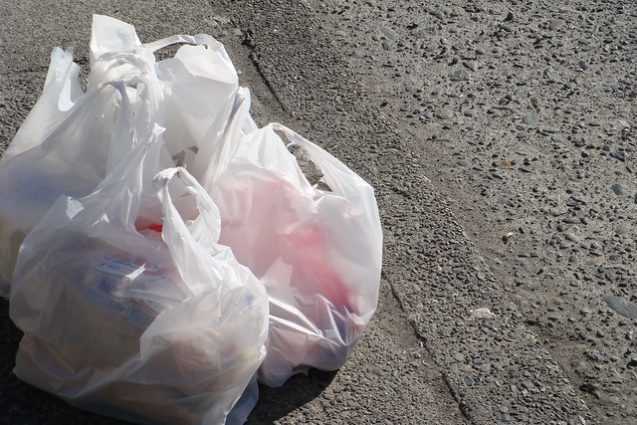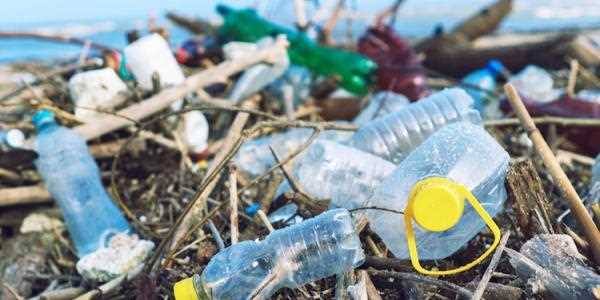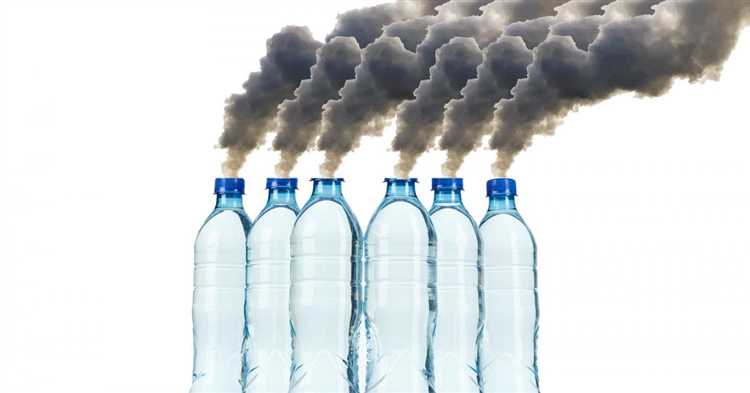
Plastic bags have become an integral part of our daily lives. They are convenient, cheap, and seemingly harmless. However, their impact on the environment, particularly their contribution to global warming, is a cause for concern. Plastic bags are made from non-renewable resources such as oil and gas, which release greenhouse gases when extracted and processed. Additionally, the production of plastic bags requires a significant amount of energy.
One of the main issues with plastic bags is their disposal. Despite efforts to encourage recycling, a large number of plastic bags end up in landfills or the natural environment. When plastic bags decompose, they release methane, a potent greenhouse gas that contributes to global warming. Furthermore, plastic bags can take hundreds of years to decompose, which means that their negative impact on the environment is long-lasting.
The manufacturing process of plastic bags also contributes to global warming. The production of plastic bags requires the burning of fossil fuels, which releases carbon dioxide into the atmosphere. Carbon dioxide is the primary greenhouse gas responsible for global warming and climate change. Additionally, the transportation of plastic bags, from manufacturing plants to distribution centers and finally to consumers, also requires energy and leads to carbon emissions.
It is crucial to understand the connection between plastic bags and global warming. By reducing our use of plastic bags and finding alternatives, we can minimize the negative impact on the environment. Governments, businesses, and individuals all have a role to play in mitigating this issue. Whether it’s using reusable bags, supporting legislation to ban plastic bags, or advocating for recycling programs, every effort counts in the fight against global warming.
- The Impact of Plastic Bags on Climate Change
- Reducing the Impact:
- The Role of Plastic Bags in Greenhouse Gas Emissions
- Plastic Bags and the Destruction of Marine Life
- The Effects of Ingesting Plastic Bags
- The Impact on Marine Ecosystems
- The Connection Between Plastic Bags and Deforestation
- Plastic Bags: A Threat to Human Health
- Reducing Plastic Bag Usage: Sustainable Alternatives
- 1. Reusable Shopping Bags
- 2. Biodegradable Bags
- 3. Compostable Bags
- 4. Paper Bags
- Q&A:
- How do plastic bags contribute to global warming?
- Are plastic bags worse for the environment than other types of bags?
- What can I do to reduce my use of plastic bags?
- Are there any alternatives to plastic bags that are better for the environment?
- What are the long-term effects of plastic bags on the environment?
The Impact of Plastic Bags on Climate Change
Plastic bags have become a ubiquitous part of our modern lifestyle, with their convenience and affordability leading to their widespread use. However, the environmental impact of these bags cannot be overlooked, especially when it comes to climate change.
1. Carbon Emissions: The production of plastic bags involves the extraction and refinement of fossil fuels, such as oil and natural gas. This process releases significant amounts of greenhouse gases, including carbon dioxide, into the atmosphere. According to studies, the production of plastic bags accounts for millions of metric tons of carbon emissions each year, contributing to the overall greenhouse gas concentration and global warming.
2. Disposal and Decomposition: Plastic bags are known for their durability, which can be useful during their short lifespan as a shopping bag. However, this durability becomes a problem when it comes to disposal. Plastic bags can take hundreds of years to decompose in landfills, and during this time, they release additional greenhouse gases, such as methane, into the atmosphere. Methane is a potent greenhouse gas, with a much higher warming potential than carbon dioxide.
3. Impact on Wildlife: Plastic bags are notorious for their harmful effects on wildlife, particularly marine animals. When plastic bags end up in oceans and other bodies of water, they can be mistaken for food by marine creatures. Ingesting plastic bags can lead to suffocation, internal injuries, and death. The decline in wildlife populations disrupts ecosystems and can further contribute to climate change.
Reducing the Impact:
It is crucial to take action to reduce the impact of plastic bags on climate change. Some initiatives that can help include:
- Reusable Bags: Opt for reusable bags made of eco-friendly materials, such as cotton or canvas, instead of relying on plastic bags.
- Recycling: Properly recycle plastic bags to minimize their accumulation in landfills.
- Education and Awareness: Educate others about the environmental consequences of plastic bags and the available alternatives.
- Government Policies: Advocate for policies that discourage the use of plastic bags and promote sustainable alternatives.
In conclusion, plastic bags have a significant impact on climate change through their carbon emissions, decomposition process, and harm to wildlife. Taking steps to reduce the use of plastic bags and promote more sustainable alternatives can contribute to mitigating climate change and preserving the environment for future generations.
The Role of Plastic Bags in Greenhouse Gas Emissions

Plastic bags have long been a subject of concern when it comes to their contribution to global warming. While they may not emit greenhouse gases themselves, the production and disposal of plastic bags have a significant impact on the amount of greenhouse gases released into the atmosphere.
Firstly, the production of plastic bags involves the extraction and processing of fossil fuels, primarily oil. The extraction process releases methane, a potent greenhouse gas, into the atmosphere. Additionally, the manufacturing process itself requires a substantial amount of energy, which is often derived from fossil fuels, further contributing to greenhouse gas emissions.
Secondly, the disposal of plastic bags also plays a role in greenhouse gas emissions. When plastic bags are sent to landfills, they undergo a slow decomposition process that releases methane gas. Landfills are a significant source of methane emissions, and plastic bags contribute to this problem by taking decades or even centuries to break down.
Furthermore, when plastic bags are incinerated, they release carbon dioxide, another greenhouse gas, into the atmosphere. Incineration is a common method of waste disposal in some regions, and plastic bags only add to the carbon footprint of this process.
It is essential to note that reducing the use of plastic bags can significantly reduce greenhouse gas emissions. By choosing alternatives such as reusable bags made from sustainable materials like fabric or paper, individuals can help mitigate the environmental impact of plastic bags.
In conclusion, plastic bags may not directly emit greenhouse gases, but their production and disposal contribute to the overall level of greenhouse gas emissions. Taking steps to minimize the use of plastic bags can have a positive effect on mitigating global warming and protecting the environment.
Plastic Bags and the Destruction of Marine Life
Plastic bags have become a major threat to marine life around the world. These lightweight and durable bags, which are used by billions of people every day, have a devastating impact on the world’s oceans and the creatures that inhabit them.
One of the main problems with plastic bags is that they do not biodegrade. Instead, they break down into smaller and smaller pieces called microplastics. These tiny pieces of plastic can be mistaken for food by marine animals, such as turtles, seabirds, and fish.
The Effects of Ingesting Plastic Bags
When marine animals ingest plastic bags, it can lead to serious health problems and even death. The digestive systems of these creatures are not designed to break down plastic, so the bags can get stuck in their intestines or cause blockages.
In addition to physical harm, plastic bags also contain harmful chemicals that can be released into the water when they break down. These chemicals can be toxic to marine animals and disrupt their hormonal and reproductive systems.
The Impact on Marine Ecosystems
The presence of plastic bags in marine ecosystems also has a ripple effect on the entire food chain. When smaller marine organisms ingest microplastics, they become consumed by larger animals, transferring the toxins up the food chain.
This contamination can affect not only marine life but also humans who consume seafood. The toxic chemicals from plastic bags can accumulate in the tissues of fish and other edible marine creatures, posing a risk to human health.
It is estimated that millions of marine animals die each year due to plastic pollution, and plastic bags are a significant contributor to this crisis. It is crucial that we find sustainable alternatives to single-use plastic bags to protect our marine ecosystems and the creatures that depend on them.
The Connection Between Plastic Bags and Deforestation
While plastic bags are often associated with issues like pollution and waste, they also have a significant impact on deforestation. The connection between plastic bags and deforestation lies in the production and disposal processes of these bags.
Plastic bags are made from petroleum, which is a non-renewable resource. The extraction of petroleum requires clearing large areas of forests, leading to deforestation. As more and more plastic bags are produced to meet the global demand, the need for petroleum extraction also increases, exacerbating the problem of deforestation.
In addition to the direct impact on forests, the disposal of plastic bags also contributes to deforestation. Many plastic bags end up in landfills, where they take hundreds of years to decompose. To make space for landfills, forests are often cleared, leading to further deforestation.
The impact of deforestation on the environment is significant. Forests play a crucial role in regulating the climate by absorbing carbon dioxide and releasing oxygen. Deforestation disrupts this balance, resulting in increased greenhouse gas emissions and contributing to global warming.
To address the connection between plastic bags and deforestation, it is essential to reduce the consumption and production of plastic bags. This can be done through the implementation of policies, such as banning or taxing plastic bags, promoting reusable alternatives, and raising awareness about the environmental consequences of plastic bag use.
- Reducing plastic bag consumption will help reduce the demand for petroleum, thereby reducing the need for deforestation.
- Promoting reusable alternatives, such as cloth bags or biodegradable options, can help decrease the reliance on plastic bags and lessen the impact on forests.
- Raising awareness about the environmental consequences of plastic bag use can encourage individuals to make more sustainable choices and actively participate in efforts to protect forests.
By understanding the connection between plastic bags and deforestation, we can work towards finding sustainable solutions that will help mitigate the negative impact on our environment and combat global warming.
Plastic Bags: A Threat to Human Health
The use of plastic bags has become an integral part of our daily lives, but their impact on human health cannot be ignored. These seemingly harmless bags pose significant dangers to both our physical wellbeing and the environment.
Plastic bags are made from polyethylene, a material that takes hundreds of years to decompose. As they break down over time, they release harmful chemicals into the soil and water, contaminating our ecosystems. These chemicals can find their way into our food chain, potentially causing a range of health problems.
Ingesting food contaminated with plastic bag particles can lead to serious health issues. The chemicals present in plastic bags, such as phthalates and bisphenol A (BPA), have been linked to hormonal disruptions, reproductive disorders, and even certain types of cancer. Studies have shown that these toxins can leach into the food and beverages we consume when stored or transported in plastic bags.
Furthermore, plastic bags are a significant contributor to air pollution. When discarded improperly, they often end up in landfills where they release greenhouse gases during decomposition. These gases, mainly carbon dioxide and methane, contribute to global warming and climate change, leading to severe health impacts such as respiratory diseases and heat-related illnesses.
Children and pregnant women are particularly vulnerable to the health risks posed by plastic bags. Studies have shown that exposure to plastic bag chemicals during pregnancy can have long-lasting effects on fetal development and can increase the risk of birth defects.
It is crucial to reduce our reliance on plastic bags and adopt more sustainable alternatives. By choosing reusable bags made of natural materials or opting for paper bags, we can significantly reduce the harm to our health and the environment. Governments and individuals must work together to implement measures and policies that promote responsible consumption and proper waste management.
In conclusion, plastic bags pose a severe threat to human health. The chemicals they release when breaking down can contaminate our food chain and lead to various health issues. Additionally, the pollution caused by plastic bags contributes to climate change, further exacerbating health risks. It is crucial to take immediate action to reduce our use of plastic bags and opt for more sustainable alternatives to ensure a healthier future for ourselves and the planet.
Reducing Plastic Bag Usage: Sustainable Alternatives

As the negative environmental impact of plastic bags becomes more evident, there is a growing need to find sustainable alternatives. Fortunately, there are several options available for reducing plastic bag usage and promoting a more eco-friendly approach to shopping and everyday life.
1. Reusable Shopping Bags
One of the most effective ways to reduce plastic bag consumption is by using reusable shopping bags. These bags are made from durable materials such as canvas or recycled materials, and can be used multiple times before they need to be replaced. By bringing your own reusable bag to the store, you can eliminate the need for plastic bags altogether.
2. Biodegradable Bags
Another alternative to plastic bags is using biodegradable bags. These bags are made from natural materials that can break down over time, reducing their impact on the environment. Biodegradable bags can be used for a variety of purposes, including shopping, packaging, and waste disposal.
3. Compostable Bags
Compostable bags are another sustainable option for reducing plastic bag usage. These bags are made from plant-based materials that can be composted along with food waste. Compostable bags break down into organic matter, contributing to the production of nutrient-rich compost that can be used in gardening and agriculture.
4. Paper Bags
While paper bags are not as environmentally friendly as reusable or biodegradable options, they can still be a better choice than plastic. Paper bags are made from renewable resources and can be recycled or reused. However, it is important to note that paper bags still require energy and resources to produce, so it is best to use them sparingly.
By adopting these sustainable alternatives, individuals can play a part in reducing plastic bag usage and mitigating the environmental impact of plastic pollution. It is important for communities and governments to promote and support the use of these alternatives through education and policies to create a more sustainable future.
Q&A:
How do plastic bags contribute to global warming?
Plastic bags contribute to global warming in several ways. Firstly, the production of plastic bags requires the use of fossil fuels, which release greenhouse gases into the atmosphere. Secondly, when plastic bags are disposed of in landfills, they break down and release methane, a potent greenhouse gas. Lastly, the energy used in the transportation and distribution of plastic bags also contributes to carbon emissions.
Are plastic bags worse for the environment than other types of bags?
Plastic bags are particularly harmful to the environment because they are not biodegradable. This means that they do not break down naturally over time, and instead accumulate in landfills and natural habitats. In addition, plastic bags are often lightweight and can easily be carried by the wind, causing litter and pollution. Other types of bags, such as paper or reusable cloth bags, are generally considered to be better alternatives to plastic bags in terms of their environmental impact.
What can I do to reduce my use of plastic bags?
There are several ways you can reduce your use of plastic bags. Firstly, you can bring reusable bags with you when you go shopping. This can include cloth bags, canvas bags, or even old plastic bags that you can reuse multiple times. Secondly, you can choose to refuse plastic bags when offered at stores or supermarkets, and instead opt for carrying your items by hand or using a backpack. Lastly, you can recycle any plastic bags that you do use, rather than throwing them in the trash, to minimize their impact on the environment.
Are there any alternatives to plastic bags that are better for the environment?
Yes, there are several alternatives to plastic bags that are better for the environment. One option is to use paper bags, which are biodegradable and can be recycled. Another option is to use reusable cloth bags, which can be washed and used multiple times. Some stores even offer biodegradable or compostable bags made from materials like cornstarch. By choosing these alternatives, you can help reduce the harmful impact of plastic bags on the environment.
What are the long-term effects of plastic bags on the environment?
The long-term effects of plastic bags on the environment are significant. Plastic bags can take hundreds of years to break down, and during that time they can cause harm to wildlife and ecosystems. Animals may mistakenly ingest plastic bags, leading to choking or blockages in their digestive systems. Additionally, plastic bags that end up in bodies of water can pose a threat to marine life, as they can be mistaken for food and cause suffocation or entanglement. The accumulation of plastic bags in landfills also contributes to pollution and can contaminate soil and water sources.